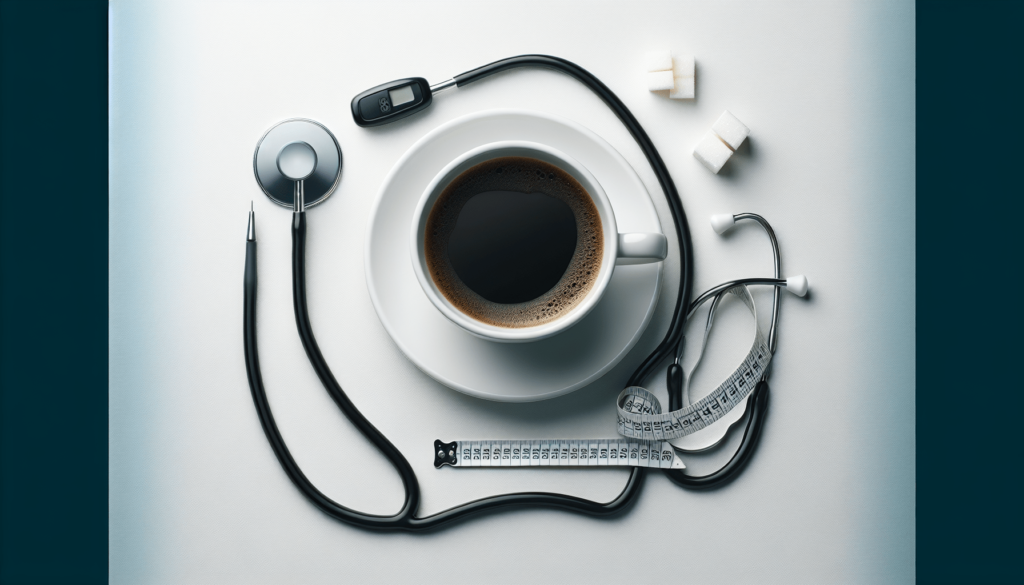Have you ever wondered just how unhealthy coffee really is? Whether you sip it for a morning boost, rely on it to power through work, or bond with friends over a steaming cup, coffee occupies a significant place in your daily routine. But amid all the campaigns of “coffee is good for you” and “coffee is bad for you,” what should you believe?
The Dual Nature of Coffee
Coffee is a double-edged sword. While it can provide numerous health benefits, there are aspects of it that may pose health risks. To untangle this complex issue, it’s essential to understand what coffee contains and how it affects your body.
What’s in Your Coffee?
Knowing what makes up your coffee can help you better grasp its potential health impacts. Every cup of coffee contains:
- Caffeine: the primary stimulant
- Antioxidants: such as chlorogenic acids
- Vitamins and minerals: such as B vitamins and magnesium
- Potential contaminants: like mycotoxins
While caffeine is the most well-known component, antioxidants play a critical role in coffee’s reputation as a potentially healthy beverage.
Benefits of Drinking Coffee
Before diving into the negative aspects, it’s good to note the benefits that this popular drink offers.
Boosts Physical Performance
Caffeine stimulates the nervous system by increasing adrenaline levels. This can enhance physical performance by mobilizing fatty acids from the fat tissues, making them available for energy. Many athletes consume coffee or caffeinated beverages before events or training for this reason.
Enhances Cognitive Function
Coffee can improve various aspects of brain function. This includes memory, mood, vigilance, energy levels, reaction times, and overall mental function due to its stimulant effects. Studies show that moderate coffee intake may reduce the risk of neurodegenerative diseases like Alzheimer’s and Parkinson’s.
Rich in Antioxidants
Coffee is one of the most significant sources of antioxidants in a typical diet. These antioxidants help combat oxidative stress and inflammation, which are linked to several chronic diseases including cancer and heart disease.
May Assist in Weight Management
Caffeine may boost metabolic rate and promote the breakdown of body fat. Some studies have suggested that caffeine can increase your metabolism by 3-11%. This makes coffee a popular beverage for those looking to lose weight.
Reduces Risk of Certain Diseases
Moderate coffee consumption has been linked to a decreased risk of several diseases, including:
- Type 2 Diabetes: Reduced risk by 23-50%
- Liver Diseases: Lower risk of liver cirrhosis
- Stroke: Lower risk by 20%
- Depression: Reduced risk and fewer instances of depression and suicidal ideations

The Downsides of Coffee
While coffee offers various benefits, it isn’t without its drawbacks.
Can Cause Anxiety and Jitters
Caffeine increases the release of adrenaline, leading to heightened alertness. For some, this can also result in anxiety and jitteriness, especially in high doses. This can be particularly problematic for those with anxiety disorders.
Insomnia and Sleep Disruption
Coffee can interfere with sleep cycles. The half-life of caffeine in the body is about 5-6 hours, meaning it can take a while to completely leave your system. Consuming coffee late in the day can disrupt your sleep, leading to difficulties in falling and staying asleep.
Potential for Addiction
Caffeine has addictive properties, and regular intake can lead to dependence. When you don’t get your usual dose, you might experience withdrawal symptoms such as headaches, fatigue, irritability, and depressed mood.
Digestive Issues
Coffee’s acidic nature can cause gastrointestinal discomfort in some individuals. This includes symptoms like heartburn, stomach ulcers, and acid reflux. People with digestive issues should be cautious with their coffee consumption.
Possible Increase in Blood Pressure
While the effect may be temporary, caffeine can lead to a short-term spike in blood pressure. This is particularly relevant for individuals with hypertension or heart disease.
contains mycotoxins
Mycotoxins are toxic compounds produced by molds that can grow on coffee beans. Though regulatory measures are in place, there is still some risk that these toxins may make their way into your coffee cup, posing potential health hazards over time.
Weighing the Factors: A Balanced View
Given the evidence on both sides, it’s essential to balance coffee’s pros and cons.
Moderate Consumption Is Key
Most health experts agree that moderate coffee consumption (1-3 cups per day) is generally safe for most adults and can even offer some health benefits. However, individual tolerance and health conditions can significantly affect how coffee impacts you personally.
| Number of Cups | Description | Health Impact |
|---|---|---|
| 1-3 | Moderate | Generally safe, potentially beneficial |
| 4-5 | High | Risk of side effects like insomnia, anxiety |
| 6+ | Excessive | Increased risk of health complications |
Listen to Your Body
Your relationship with coffee should be guided by your own experiences. If you notice adverse effects, consider cutting back or altering your coffee consumption patterns. Pay attention to how your body reacts, especially regarding sleep, digestion, and anxiety levels.
Alternatives and Moderators
If you find that coffee doesn’t sit well with you but still want the benefits of caffeine, consider alternatives like green tea or matcha. Additionally, strategies like choosing decaffeinated options or mixing coffee with milk can help reduce its potential negative impacts.

Real-World Application: Case Studies
Sometimes, understanding how coffee affects others can provide useful insights into its broader impacts. Here are a couple of case studies to demonstrate diverse experiences.
Case Study 1: Professional Athlete
A professional athlete named Alex relies on coffee for its performance-enhancing qualities. Alex drinks two cups before workouts and notices improved stamina and strength. By scheduling coffee intake around workouts and limiting it to mornings, Alex benefits from both the physical and cognitive enhancements while minimizing the risk of insomnia.
Case Study 2: Office Worker
Jane, a 9-to-5 office worker, started her mornings with two cups of coffee. Over time, she noticed increased anxiety and occasional heart palpitations. By switching to one cup of coffee and introducing green tea in the afternoon, Jane found a balance that kept her alert without adverse effects on her mental health.
Tips for Healthier Coffee Consumption
To maximize the benefits and minimize the downsides, here are some tips:
Opt for Quality Beans
High-quality coffee beans are less likely to contain mycotoxins. Choose organic and specialty-grade coffee to ensure you’re drinking the best quality.
Avoid Sugar and High-Calorie Additions
Loading your coffee with sugar, cream, and other high-calorie additions can negate its health benefits. Consider using healthier alternatives like plant-based milk or natural sweeteners.
Be Mindful of Timing
Consuming coffee in the morning rather than late in the day can help you avoid sleep disturbances. Aim to finish your last cup at least six hours before bedtime.
Stay Hydrated
Coffee can have diuretic effects, leading to dehydration. Make sure you’re drinking plenty of water throughout the day, especially if you consume multiple cups of coffee.
The Bottom Line
While coffee has its drawbacks, it offers numerous health benefits when consumed in moderation. Understanding your body’s response, opting for quality coffee, and being mindful of your consumption habits can help you enjoy your favorite beverage without compromising your health. So, as you sip your next cup, you can do so with a well-rounded understanding of how this beloved drink can fit into a healthy lifestyle.
